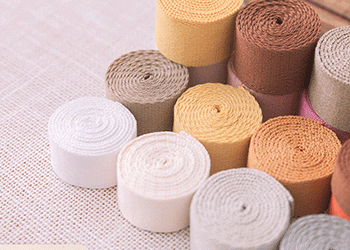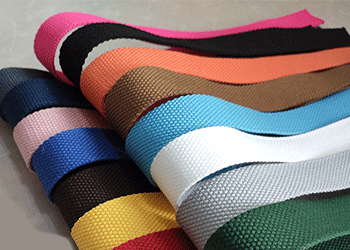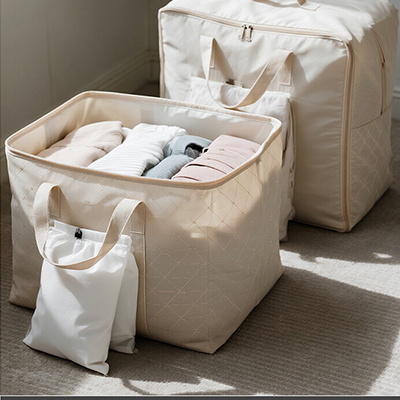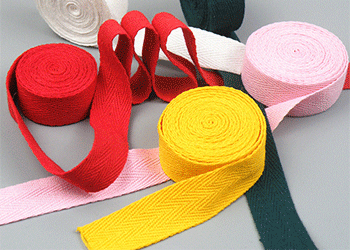Why Poly-Cotton Webbing Is Becoming a Top Choice for Modern Manufacturers

In today’s rapidly evolving manufacturing environment, global brands are increasingly searching for webbing materials that combine durability, sustainability, and comfort. Among the many options available in the market, poly-cotton webbing has started gaining significant attention across industries such as apparel, outdoor gear, pet products, luggage manufacturing, and industrial equipment.
With its unique blend of polyester and cotton fibers, poly-cotton webbing offers the performance benefits of synthetics while maintaining the natural appeal and softness of cotton. This balance makes it a preferred choice for brands seeking both strength and aesthetics—especially when sourcing from a reliable poly cotton webbing manufacturer.
What Makes Poly-Cotton Webbing Unique?
Poly-cotton webbing is a blended material. Polyester provides strength, colorfastness, and abrasion resistance, while cotton contributes breathability, softness, and a natural texture. When woven together, these fibers create a highly versatile strap suitable for both functional and decorative applications.
Key distinguishing advantages include:
✔ Superior comfort compared to pure polyester
The cotton component provides a softer hand-feel, making it suitable for wearable or touch-heavy applications.
✔ High durability and tensile strength
Polyester enhances structural integrity, allowing the webbing to withstand heavy loads and repeated bending.
✔ Better breathability and reduced skin irritation
Ideal for apparel trims, backpack straps, and pet products.
✔ Premium appearance
The natural matte finish appeals to brands seeking an eco-conscious or artisanal aesthetic.
✔ Cost-effective customization
Blended fibers offer more flexibility for dyeing, weaving, and branding.

For these reasons, more international buyers are turning to a custom poly-cotton webbing supplier for long-term OEM projects.
Where Poly-Cotton Webbing Is Most Commonly Used
Poly-cotton webbing has become widely adopted in both consumer and industrial product categories. Its versatility makes it suitable for:
1. Bags, Backpacks & Luggage
Manufacturers often request durable poly cotton webbing for bags because it withstands abrasion while still offering a soft, premium feel. Bag handles, shoulder straps, trim, and reinforcement straps benefit greatly from poly-cotton's strength and flexibility.
2. Apparel & Workwear
Brands value heavy-duty poly cotton webbing for apparel, especially for waistbands, uniform trims, belts, and outerwear accessories. Its blended structure ensures comfort without compromising longevity.
3. Outdoor & Sporting Equipment
Poly-cotton performs well in changing climates, making it suitable for camping gear, tents, hammocks, and adjustable straps.
4. Pet Collars & Leashes
The soft texture reduces chafing while providing durability for daily use.
5. Industrial & Packaging Applications
The material’s stability and reliable strength make it adaptable for OEM industrial straps and bundling solutions.
Across these sectors, poly-cotton is frequently chosen for both its functional and aesthetic performance.

Why Poly-Cotton Webbing Appeals to Sustainability-Focused Buyers
Sustainability has become a major purchasing factor in global supply chains. Poly-cotton webbing addresses this shift by combining natural fibers with long-lasting synthetic materials. Many eco-conscious brands are actively seeking eco-friendly poly cotton webbing because it:
Reduces full synthetic fiber usage
Offers extended lifespan, reducing product waste
Supports recyclable or partially biodegradable product designs
Matches modern brand values around environmental responsibility
When paired with low-impact dyeing techniques or organic cotton options, poly-cotton becomes even more attractive to sustainable brands.
China’s Position as a Global Hub for Poly-Cotton Webbing Production
China remains one of the world’s leading producers of woven webbing due to advanced manufacturing infrastructure and cost-efficient sourcing. Buyers looking for scalable production often partner with poly cotton webbing China wholesale suppliers for benefits such as:
Access to advanced looms and blending technology
Stable material sourcing channels
Professional color-matching and pattern customization
High output capacity for seasonal or large-volume orders
Competitive pricing with export-ready quality standards
This ensures consistent, reliable supply—crucial for global brands working on tight production timelines.
How Blended Fiber Technology Enhances Webbing Performance
One of the biggest advantages of poly-cotton straps is the ability to leverage two fiber types in a single solution. Manufacturers offering blended fiber webbing solutions understand how to optimize weaving structure, yarn proportions, and finishing techniques to achieve:
Enhanced tear resistance
Better dimensional stability
Reduced
stretching under load
Improved comfort for wearable applications
Uniform color lasting in both synthetic and natural fibers
This hybrid engineering gives poly-cotton webbing superior performance compared to single-fiber straps.
Custom OEM Requirements and Branding Options
For international buyers, one of the most important factors in webbing procurement is customization capability. Brands often require:
Custom widths and thicknesses
Pantone color matching
Textured patterns
Soft or stiff finishes
Reinforced edge weaving
Printing or jacquard logo options
Precise reel lengths for automated machinery
A professional poly-cotton strap manufacturer can meet these technical needs with consistency and reliability.
Companies that offer customized poly cotton webbing OEM services can support B2B buyers from sampling and prototyping to mass production, ensuring brand identity and product functionality are aligned with the intended market segment.
What Buyers Should Evaluate When Selecting a Supplier

When sourcing poly-cotton webbing, B2B buyers should carefully review a supplier’s:
1. Production Equipment
Advanced looms ensure tight weaving, consistent patterns, and high load-bearing performance.
2. Material Quality Control
Premium polyester and long-staple cotton significantly improve durability.
3. Colorfastness Certification
Critical for apparel, bags, and outdoor brands.
4. Testing Capabilities
Look for tensile, abrasion, and shrinkage testing to meet international standards.
5. OEM/ODM Experience
A seasoned custom poly-cotton webbing supplier can advise on structure, finishing, and branding for your product category.
Elesa Webbing: A Reliable Source for Premium Poly-Cotton Webbing

The page at elesawebbing.com/webbing/poly-cotton-webbing/ demonstrates deep expertise in manufacturing poly-cotton straps for global B2B buyers. Their capabilities include:
Multi-material blending (cotton + polyester)
Customized thickness, width, and density
A variety of finishing styles and color options
Strong OEM/ODM support for apparel, bags, outdoor gear, and industrial use
Export-standard quality control
This makes Elesa Webbing a dependable partner for long-term sourcing requirements.
Conclusion: Why Poly-Cotton Webbing Is a Smart Choice for Modern Products
As global manufacturing trends shift toward sustainability, comfort, and high performance, poly-cotton webbing has emerged as a material that checks all the boxes. It offers durability, softness, eco-value, and customization flexibility—qualities that modern brands rely on for competitive advantage.
Whether you are searching for a poly cotton webbing manufacturer, exploring blended fiber webbing solutions, or developing customized poly cotton webbing OEM projects, choosing the right supplier will greatly impact the quality and success of your final product.
For businesses that prioritize durability, design, sustainability, and reliable production, poly-cotton webbing remains one of the most valuable materials for the future of product manufacturing.